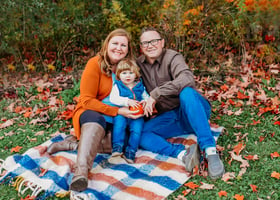We see or hear about the many struggles of teens and young adults: increased aggression, bullying, addictions, the pressure to be sexually active at a young age, the pitfalls of social media, and the depression and anxiety that come with feeling that your world is not a safe place. We watch and worry about our children and wonder if there is anything that we can do to ease their transition safely and successful into adulthood.
Bell Talk Let’s Talk Day is a good time to remind ourselves there is much that we can do to prepare our children for the future, increase their resilience and promote good mental health.
Parents may wonder about limits and consequences vs being permissive and understanding. The reality is that there isn’t a one size fits all parenting recipe. Raising children is a delicate balance.
We can more easily achieve that balance by investing time to build strong relationships with our children and by connecting them to other adults and families who share our values. The expression, “It takes a village to raise a child” is truer now, than ever before.
Best practices for parenting?
- Establish tech free times and places.
- Eat family meals together.
- Join and attend a place of worship or a service club. Play a sport or learn a craft together, explore the great outdoors, take short day trips or weekends away.
- Make the most of opportunities to connect with each other and with other families with similar values and goals.
According to Drs. Gordon Neufeld and Gabor Mate (Hold On to Your Kids: Why Parents need to Matter More than Peers; Ballantine Books, 2014) spending quality time with our kids creates connection. Connection means that our kids will want to please us. That reduces the challenges of an adversarial relationship which leads to anxiety, depression and more. With all of the pressures and distractions parents face, connection is not an easy task, but the effort can help avoid more serious problems down the road.
For further guidance in putting these ideas into practice consider meeting with a mental health professional.
Lauren Shaps, MSW RSW, is a clinical social worker in private practice. She works with individuals, couples, families, adults and teens to help them build healthier and more connected relationships. Visit her website at https://www.laurenshaps.com/


